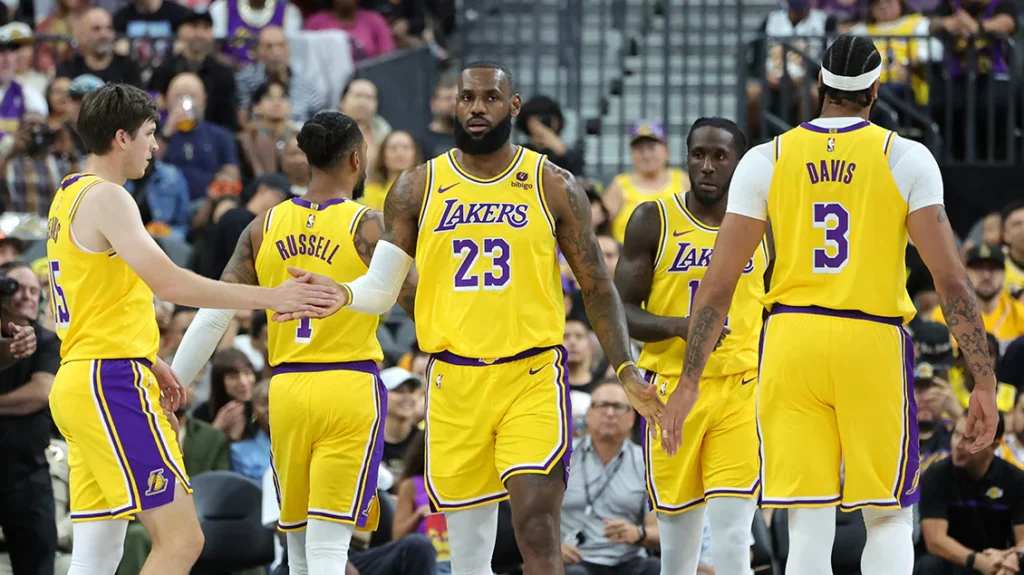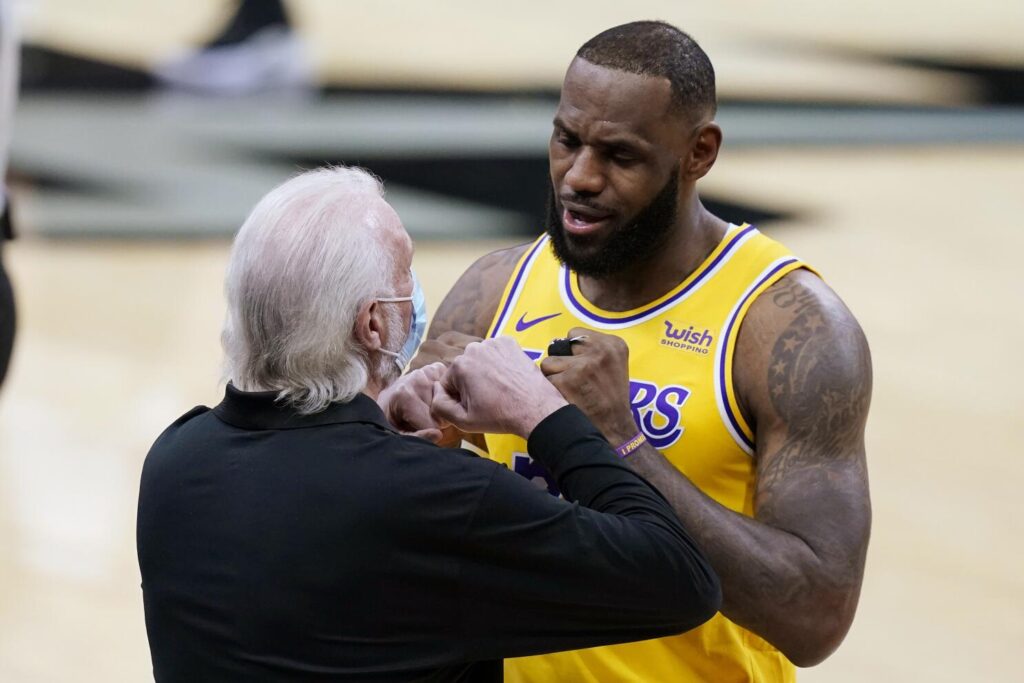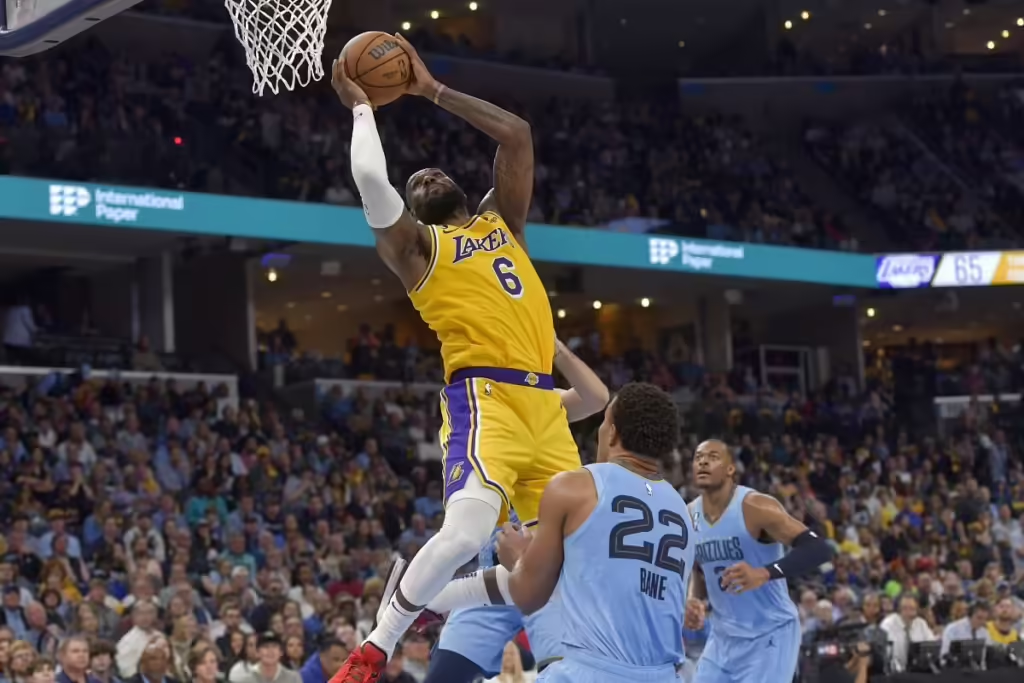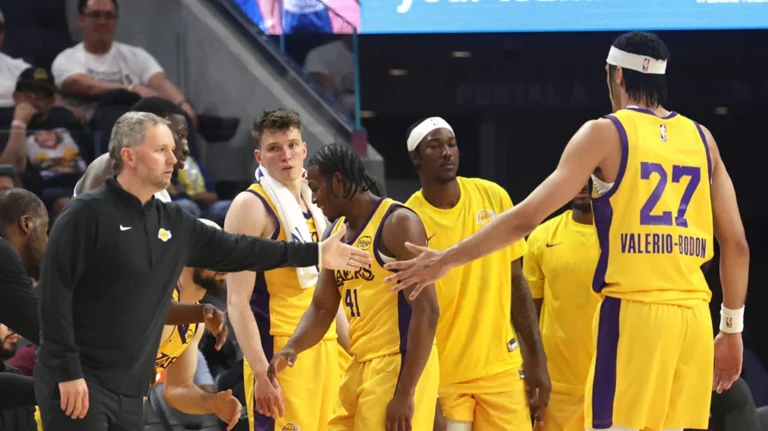Table of Contents
Introduction
When you think of the Los Angeles Lakers, what comes to mind? Maybe it’s the dazzling championship banners hanging in the rafters, the legendary players who have graced the court, or the high-energy games that have kept fans on the edge of their seats. The Lakers are one of the most iconic teams in NBA history, and their success isn’t just about the big names or flashy plays. It’s also about how every individual, from star players to coaches to the front office, plays a crucial role in winning games and building a winning culture.
So, how exactly do these individual contributions impact the Lakers’ success? Well, it’s a mix of superstar performances, strategic coaching, smart management decisions, and passionate fan support. Each piece of the puzzle fits together to create a team that’s more than just the sum of its parts.
Let’s dive into how individual players like LeBron James and Anthony Davis bring their A-game and why their roles are so important. We’ll also look at how coaches craft game plans and make adjustments on the fly, and how the front office makes key decisions that shape the team. Plus, we can’t forget about the fans and media, who play a huge role in creating the energy and excitement around the team.
In this exploration, we’ll break down all these elements and show how they come together to make the Lakers a powerhouse in the NBA. Whether you’re a die-hard fan or just curious about what makes this team tick, you’ll get a clearer picture of why the Lakers continue to be a winning force on the basketball court.
Key Player Contributions
When you watch the Lakers play, it’s easy to spot the stars on the court—those players who seem to make every game-changing play and light up the scoreboard. But their impact goes beyond just the highlights. Each player brings something unique to the table, and understanding their contributions can really help you appreciate how the Lakers keep winning.

Superstar Impact
Take LeBron James, for example. He’s not just a basketball player; he’s a force of nature on the court. His leadership, both in game and in the locker room, sets the tone for the whole team. LeBron’s ability to read the game, make smart passes, and come through in clutch moments is a huge part of what keeps the Lakers at the top. Then there’s Anthony Davis, whose defensive skills and scoring ability make him a game-changer. Davis can guard multiple positions and score from almost anywhere on the court, making him a crucial piece of the Lakers’ puzzle.
And let’s not forget the Lakers’ past legends like Kobe Bryant, Magic Johnson, and Kareem Abdul-Jabbar. These guys didn’t just play; they made history. Their legendary performances and leadership helped shape the Lakers into the powerhouse they are today. Their impact is felt in every game, even if they’re not on the court anymore.
Role Players and Their Significance
Now, you might think the superstars are the only ones who matter, but role players are just as crucial. These are the guys who might not grab the headlines but play key roles in making sure the team runs smoothly. Think of players like Alex Caruso or Robert Horry—guys who might come off the bench but can make big plays when it counts. Their contributions might not always be flashy, but they’re vital to the team’s success.
Defense and hustle are also huge. Some players are known for their tenacity on defense and their energy on the court, and this kind of effort can turn a game around. Their hard work often goes unnoticed but is essential for winning games.
In short, while the big-name stars get a lot of the spotlight, every player on the roster has a role that impacts the Lakers’ success. Each one, from the superstars to the unsung heroes, brings something valuable to the team, helping the Lakers continue their winning tradition.
Coaching and Leadership
When you watch the Lakers dominate on the court, it’s easy to think it’s all about the players. But behind the scenes, there’s a lot more going on, especially when it comes to coaching and leadership. The role of the coaching staff is critical in shaping how the team plays and ultimately how successful they are.

The Head Coach’s Role
Think of the head coach as the mastermind behind the scenes. Their job is to come up with strategies and game plans that make the most of the team’s strengths. This means drawing up plays, making adjustments during games, and figuring out how to outsmart the opponent. Great head coaches like Phil Jackson and Pat Riley have done this exceptionally well, guiding the Lakers to multiple championships with their innovative strategies and knack for making the right calls in critical moments.
But it’s not just about drawing up plays. A head coach also helps players improve their skills and grow as athletes. They mentor young talents and help veterans stay sharp. The best coaches are those who can push their players to be their best while keeping everyone on the same page.
Assistant Coaches and Staff
It’s not a one-person show, though. The assistant coaches and support staff play a huge role too. These folks have specialized jobs, like focusing on the offense, defense, or player development. They’re the ones who help fine-tune players’ skills and work on specific strategies.
Scouting and analytics are also key parts of the coaching team’s toolkit. They gather data and watch games to help the Lakers understand their opponents and make smart decisions. This behind-the-scenes work is crucial for coming up with effective game plans and making informed choices about player matchups and strategies.
In a nutshell, coaching and leadership are all about creating a winning environment. The head coach sets the vision and strategy, while the assistant coaches and staff handle the details and day-to-day work that make everything run smoothly. Together, they help turn a group of talented individuals into a well-oiled machine capable of winning big games and championships.
Front Office and Management Influence
While the action on the court is what grabs the headlines, there’s a lot happening behind the scenes that plays a huge role in the Lakers’ success. The front office and management are the unsung heroes who make critical decisions that shape the team’s future and ensure they stay competitive.
Team Building
One of the main jobs of the front office is to build a winning team. This involves making smart decisions about drafting new talent, making trades, and signing free agents. It’s not just about picking the biggest names but finding players who fit well with the existing team and can contribute to their success. For instance, trades like bringing Shaquille O’Neal and Pau Gasol to the Lakers were game-changers, helping the team win championships by adding key pieces to the roster.
Another important aspect is managing the salary cap, which is like the team’s budget for player salaries. The front office has to balance paying big stars while also ensuring there’s enough depth in the roster. This financial juggling act is crucial for maintaining a competitive team over the long term.
Organizational Culture
Creating a winning culture is also a big part of what the front office does. This involves setting the tone for the team and making sure everyone is aligned with the goal of winning championships. It’s about fostering an environment where players are motivated, feel supported, and are encouraged to give their best.
Good relationships with players and their agents are another key component. The front office has to manage these relationships carefully to keep players happy and focused. They also play a part in the Lakers’ ability to attract top talent, thanks to the team’s strong brand and market presence.
In essence, the front office and management are like the team’s architects. They make the decisions and set the strategies that influence every aspect of the team’s performance. From building the roster and managing finances to creating a positive culture, their work is crucial in keeping the Lakers competitive and successful in the NBA.
Fan and Media Influence
The Lakers aren’t just famous for their incredible players and championships—they also owe a lot of their success to the passionate fan base and the ever-present media coverage. Both play significant roles in energizing the team and shaping public perception.

The Lakers Fanbase
Lakers fans are some of the most dedicated and enthusiastic supporters in sports. Their energy can be a huge boost to the team, especially during home games. The roar of the crowd, the sea of purple and gold, and the electric atmosphere in the arena all contribute to creating a home-court advantage that can be intimidating for visiting teams.
Beyond the games, Lakers fans are incredibly active on social media, where they share their excitement, discuss game highlights, and support their favorite players. This online buzz can have a positive impact on the team’s morale and can even influence how players feel about their performances. When fans are engaged and excited, it creates a positive feedback loop that can energize the team.
Media Pressure and Coverage
The media plays a major role in shaping how the Lakers are viewed by the public. Constant media attention can put a lot of pressure on players and coaches, especially during high-stakes games or when the team is struggling. This spotlight means that every win and loss is scrutinized, which can amplify the highs and lows of the season.
Media narratives also help shape public perception of the team. Whether it’s a story about a player’s impressive performance or coverage of a critical game, the media helps create and spread the stories that fans talk about. These narratives can influence how the team is perceived and can impact everything from player confidence to fan support.
In summary, the fan base and media are integral parts of the Lakers’ success story. Fans provide the energy and enthusiasm that boost the team, while media coverage helps shape public perception and can impact team morale. Together, they create an environment that supports and amplifies the Lakers’ efforts on the court.
Individual Psychological and Physical Preparedness
Winning in the NBA isn’t just about having talent; it also requires mental and physical preparation. For Lakers players, staying at the top of their game means focusing on both their mental toughness and physical conditioning. Here’s how these factors play a crucial role in their success.
Mental Toughness
Basketball is as much a mental game as it is a physical one. Players need to stay focused and composed, especially in high-pressure situations. Think about those clutch moments in games where every second counts—the ability to stay calm, make smart decisions, and execute plays perfectly is essential.
Resilience is another key aspect of mental toughness. Injuries, losses, and personal challenges are part of the game, and how players bounce back from these setbacks can make a big difference. It’s about maintaining confidence and staying motivated, no matter what obstacles come their way. The mental strength of players helps them stay focused on their goals and perform at their best when it matters most.
Physical Conditioning
To perform at a high level, Lakers players must also prioritize their physical health. This means staying in peak physical condition through rigorous training and conditioning. Regular workouts, strength training, and endurance exercises help players maintain the athleticism needed for the fast-paced demands of the game.
Injury prevention and recovery are equally important. The physical demands of basketball can lead to injuries, so players need to follow comprehensive injury prevention programs and recovery plans. This includes proper rest, rehabilitation, and sometimes even adjustments to their training routines to ensure they stay fit and ready for each game.
Diet plays a big role too. A balanced diet tailored to the specific needs of athletes helps with energy levels, recovery, and overall performance. Proper nutrition ensures that players have the strength and stamina to compete at the highest level.
In short, both mental and physical preparedness are vital for Lakers players. Mental toughness helps them handle pressure and setbacks, while physical conditioning ensures they stay in top shape and avoid injuries. Together, these elements enable players to perform consistently and contribute to the team’s success on the court.
The Synergy of Individual and Team Dynamics
In the world of professional basketball, individual talent is crucial, but it’s the synergy of team dynamics that often determines success. For the Lakers, blending individual skills and personalities into a cohesive team is key to their victories. Here’s how this synergy plays out on the court and beyond.
Chemistry and Cohesion
Building strong on-court chemistry is essential for any team, and it’s something the Lakers focus on intensely. When players understand each other’s strengths, weaknesses, and playing styles, it leads to smoother and more effective teamwork. Think of it like a well-oiled machine—each player knows their role and how to complement their teammates. This trust and understanding allow for better ball movement, defensive coordination, and overall game strategy.
Locker room dynamics also play a significant role. A positive locker room atmosphere where players get along well and support each other can enhance team performance. Leaders within the team, like veteran players or captains, help foster this environment by setting a good example and encouraging teamwork. The way players interact and support each other off the court often translates into better performance during games.
Communication and Teamwork
Effective communication is another cornerstone of successful team dynamics. On the court, players need to talk to each other constantly to coordinate plays, make defensive adjustments, and respond to fast-changing situations. Clear, quick communication helps avoid mistakes and ensures that everyone is on the same page.
Teamwork also involves making sacrifices for the greater good. Sometimes, players need to put personal stats or accolades aside to benefit the team. This could mean playing a different role, taking fewer shots, or focusing more on defense. When players are willing to make these sacrifices, it helps create a more unified and effective team.
In essence, the synergy between individual skills and team dynamics is what makes the Lakers successful. Building strong on-court chemistry, fostering a positive locker room environment, and ensuring effective communication all contribute to creating a cohesive team. When every player works together and supports each other, it enhances the overall performance and leads to more victories.
Conclusion
So, what’s the secret behind the Lakers’ success? It’s a combination of many factors coming together seamlessly. From the individual brilliance of star players to the strategic decisions made by coaches and management, every piece of the puzzle plays a vital role in achieving victory.
To sum it up, the Lakers’ success isn’t just about having a roster full of talented players. It’s about how these players contribute individually and work together as a team. Superstars like LeBron James and Anthony Davis shine on the court, but it’s the role players, coaches, and front office decisions that support and enhance their performances.
The coaching staff crafts strategies and keeps the team motivated, while the front office builds and manages the roster to keep the team competitive. The passionate fanbase provides crucial support, and media coverage keeps the Lakers in the spotlight, influencing both player morale and public perception.
Mental and physical preparation is key for the players, ensuring they stay sharp and resilient through the highs and lows of the season. And let’s not forget the importance of team dynamics—chemistry and communication are essential for turning individual talents into a winning team.
Looking ahead, the Lakers will continue to rely on this blend of individual excellence and collective effort to maintain their place as one of the NBA’s elite teams. As they move forward, the synergy between these elements will remain crucial in their pursuit of future championships.
In the end, it’s this intricate balance of individual contributions, team dynamics, and strategic decisions that makes the Lakers not just a successful team, but a true basketball powerhouse.




